The Invisible Developers Behind the Biggest Games
Invisible. Unknown. Uncredited.
Look at these credits. These are all the people that worked on The Legend of Zelda - or at least, the ones Nintendo wants you to know about. But did you know that there are people missing from the credits? Not because someone forgot, but because they're not allowed to be credited. And they have a name…
The industry calls them Ghost Developers—the invisible creators behind some of the biggest games. Secretly hired by major companies, these ghost devs craft everything from level design to even entire games. The only rule? No credits. And that’s a problem - because with no credits, no proof of work. And no proof of work means no career. So why would any developer choose to stay invisible, especially in times of mass layoffs? Well, it turns out that not all ghost devs are unhappy about staying hidden. Some of the very people behind the biggest games actually prefer to work this way. But why? Let’s find out.
Credits have always been a big deal, from games to movies to TV shows. Without your name in the credits, there’s no proof of work, no resume, and no future. That’s what makes the world of “Ghost,” “Shadow” or even “Ninja” developers so strange. They choose to stay uncredited. But in a field where layoffs are common, how do you apply for a new job if you can’t show your portfolio? Well to understand this conundrum, I realized there are actually two kinds of ghost devs. Those that wanna stay uncredited, and those that are uncredited without a choice. It’s a widespread struggle in the gaming industry - and it’s bigger than I thought, with devs striking and fighting against unfair crediting practices.
So, to find out why we have two camps of devs and what has changed, I had to go all the way back to the good old Atari days!
Atari never credited their employees in their games. Why? Out of pure disregard for their work. They weren’t seen as creators, just tools to make the next big hit. But one employee wasn’t having it and did something that would change gaming forever: He secretly coded a hidden room into the game ‘Adventure,’ with the message “Created By Warren Robinett.” When Atari found out a year later, Warren Robinett had already left the company, but his secret message was a wake-up call - it showed other developers they didn’t have to stay invisible.
Like Sega. Across the ocean, Yuji Naga - the genius behind Sonic - had the same problem. Denied credit, he secretly added his and his team’s names in black text on the black opening screen.
You’d never see them unless you’re using this code on a Japanese Mega Drive which changes the screen to white.
These moments of defiance weren’t just clever—they were necessary. Developers were tired of being just another nameless tool. So if getting credited is so important, why would some prefer to stay ghost? To answer this, I first had to find out why studios are so secretive about their devs to begin with - and I found four big reasons:
The first reason is simple: There are no standards. In film, we have unions that enforce strict rules on crediting literally everything and everyone - ehem… but in gaming? No such rules. The lack of regulation gives studios free pass to decide who gets credited and who doesn’t. That’s why game studios can use this against you. Which leads us to reason number 2.
Bargaining power. You see, when you’re the brain behind a hit game, you’re not just entitled for a raise, but other studios can snatch you up too. To prevent this, studios prefer to keep things quiet, so you have no bargaining power over them. It usually works. But sometimes, it backfires.
Like in Atari’s case. Five of their top talents had enough, left the company and made history by starting the first third-party game publisher ever: Activision! And boy, did Activision credit their devs literally everywhere.
The third reason is pretty sneaky. Punishment. If you leave before the game’s release, you won’t see your name in the credits. Even though you worked your ass off. That was the case with Gotham Knights. Warner Bros. put over a 100 longtime devs into the ‘special thanks’ section - without their titles. No credits for those that don’t stick around. Meanwhile, names like Sweet Baby Inc. are front and center - a useless narrative consulting firm that did practically no valuable work on the game.
Anyways, threatening devs with credits to push them through the finish line is unfortunately pretty common. Rockstar Games for instance- man, they are notorious for this. After crunch-working on Manhunt, GTA V and Red Dead for years, those who left before release were also left off the credits. The only proof they exist is on some page on Rockstar’s website, with no details of their work.
And then there is reason number four, which struck me the most: BRANDING. Studios want to maintain the illusion that their games are built entirely in-house. The truth? Many rely on external teams to handle the grunt work. But acknowledging that would “dilute the brand,” so publishers go to great lengths to hide the contributions of outside developers.
Like Nintendo. You’d think Donkey Kong, Mario Kart or Metroid Prime were all Nintendo’s doing? Not quite. Much of the grunt work was done by Retro Studios in Texas. But when Metroid Prime Remastered rolled out, Nintendo lumped the devs into a mere 15 words. A "travesty” according to the developers.
To hold up the brand illusion, the list of uncredited work is endless; from super old games to even the latest and greatest stars, studios are free to do whatever they want without facing any real consequences.
Even Robin Williams, a huge Legend of Zelda fan, who famously named his daughter Zelda, commented on the lack of recognition in gaming, saying “gaming industry is lacking recognizable stars.” And he was right - while a few are well-known, it’s true that game devs aren’t exactly household names. EA - back in the days - actually tried to combat that, by depicting devs as “artists,” celebrating them in ad campaigns like they were the next Beatles of the gaming world.
But this was just EA. No other studio would do that. And so, to this day, devs have been fighting to be credited where credit is due.
Except “Ghost Devs”, who are never credited for their work and PREFER it that way. But why? Well, the answer brought me to the biggest and yet most invisible game studio you’ve probably never heard of…
TOSE. Based in Kyoto/Japan, TOSE’s 3000 em ployees have worked on more than 2000 games and are still pumping out about 100 games per year - from Dragon Quest to Zelda, Final Fantasy, Metal Gear, Resident Evil…the list is so long you might start asking which games they DIDN’T work on.
TOSE has been secretely developing games for all the major pu blishers since 1979. They handle everything from ideating to level and sound design, porting and - yeah, even entire games, like the Starfy series, the only game they actually own the rights to.
But if you ask them, they’d rather not say anything. Their company policy prohibits them from taking credit - unless an overseas client insists.
And don’t even bother looking them up - Youtube channel? Empty. LinkedIn? Just another “game dev company.” Their website? Doesn’t reveal much either. The games you see there are only a fraction of what they’ve worked on. As their wiki page says: They’re the *real* shadow samurai of the industry.
But why stay uncredited when everyone else is fighting for it?
Well, it turns out - it’s a Japan thing. Over there, gamers often choose games based on the publisher, not so much the developer. It’s actually very common in Japan to say “I’m gonna play this and that game because it’s from the publisher Atlus, Nintendo or Square Enix,” not so much the developer. And because of this culture, TOSE’s vision has always been one of not having a vision.
“Our policy is not to have a vision,” they said in an interview. “We follow the customer’s vision.”
And by doing that, they focus on their main strategy: Build a company that lasts forever by staying behind the scenes.
As TOSE’s CEO put it:
"We thought at some point that the best thing to do would be to be No. 1 behind the scenes."
And you know what? That strategy works. If a game’s a hit, they profit. If it flops, TOSE isn’t on the hook. They just move on to another client’s game. No one will know.
But with all this secrecy, how do new clients find them? Well, in Japan, TOSE is already well-known amongst publishers. But to reel in foreign clients, they invite them over to their hidden office vault containing all their secret games—a private showcase of their uncredited work. It’s like a clandestine museum where future clients get to see TOSE’s work without any titles ever being publicly disclosed.
But here’s the catch: what works in Japan doesn’t work overseas. And that’s the challenge with ghost dev companies: It’s hard to sell yourself if you can’t talk about your work.
When TOSE tried to break into the U.S., they hit a wall. Wes tern publishers wanted to see public portfolios, titles to verfiy and demos to test. But due to strict confidentiality agreements, TOSE couldn't openly showcase their past work.
But that’s how it goes with ghost devs, especially in Japan. There, the brand is everything. If gamers knew who really worked on these , it would dilute the brand way too much and the worry is that games will say, ‘Wait a minute, Square Enix didn’t make that? I thought they did.’
And here’s where things get interesting: This brand illusion is starting to crumble. Despite their efforts to stay hidden, TOSE has been on the news laterly - They’re in trouble due to layoffs and game cancellations, and ironically, it’s Square Enix that’s pulling the plug.
After Square canceled $140M worth of games, TOSE, who’s been workin g with Square for ages, is now showing red numbers with losses in the millions.
We all know mass layoffs are hitting the industry everywhere, bu t in Japan, mass layoffs aren’t as common because they have very strong worker protections. So instead of letting go people, they let go games. Which is killing TOSE’s business.
And that’s the things with Ghost developers. It’s a double-edged sword—work without recognition, stability without visibility. It’s a trade-off between credit and job security. But as we know, no job is ever secure. Especially not in the West, where we’re using credits as a power play.
Trapping workers in a studio, denying them reco gnition and surpressing their bargaining power, that will just backfire. As an industr y insider states, while American capitalism is all about “profit, profit, profit, and profit,” in Japan, the thinking is different.
As I said, there, they rather cancel games, then people. That's why they're much better at keeping talented developers than some Western studios. Companies like Xbox rather throw pizza parties for laid-off devs. Instead of trying to keep th em, they feed them a few goodbye slices of pepperoni to show gratitude for their hard work.
And so, TOSE might be around for many more years to come - with their loyal army of developers, they can easily pivot to whatever becomes more popular, whether that’s mobile games, smart devices or the next big thing. Those ghost devs aren’t going anywhere for now.



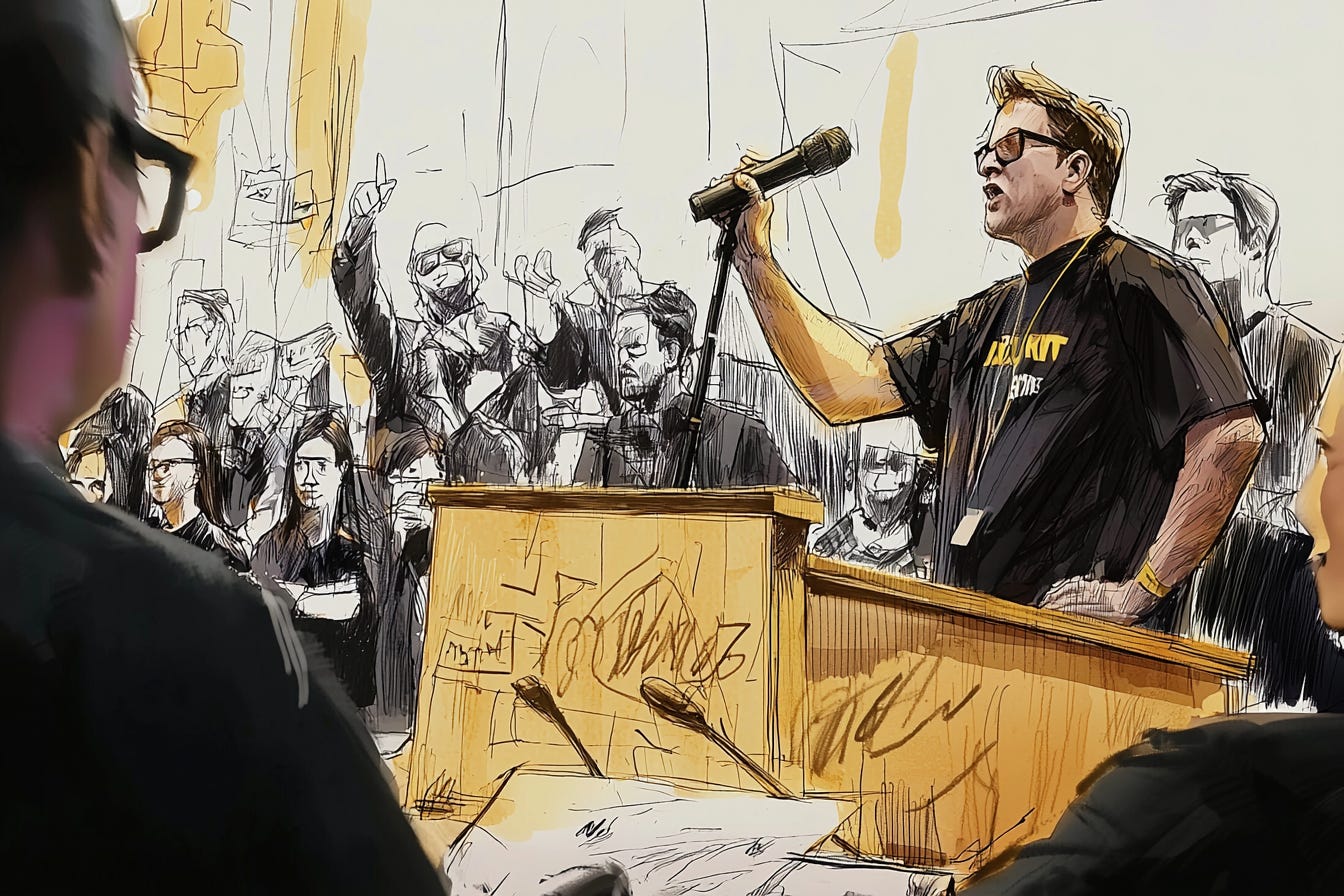
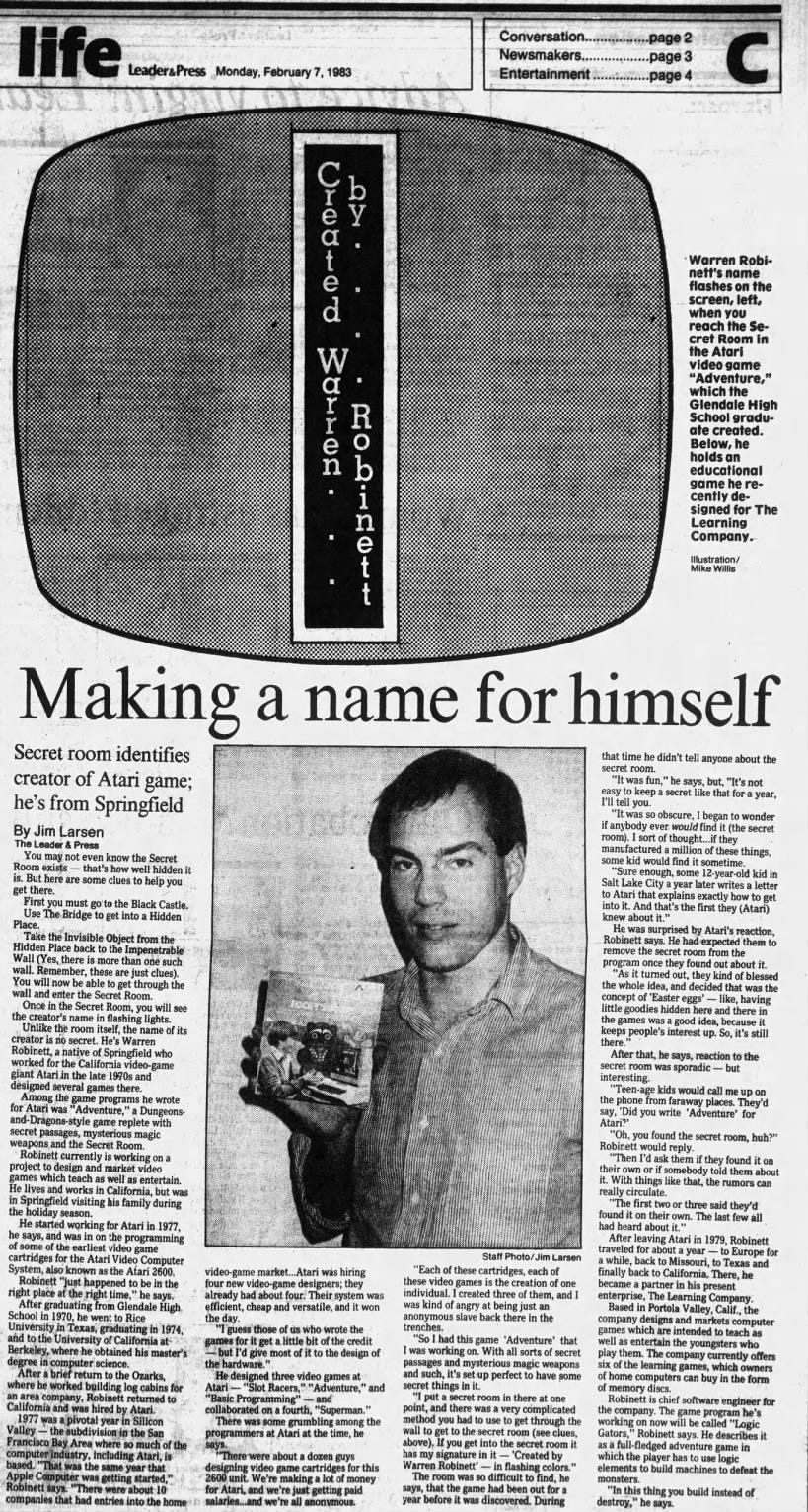
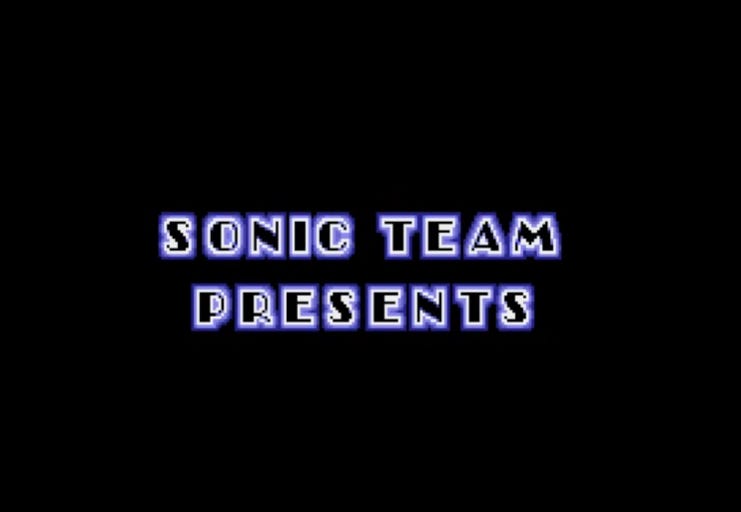
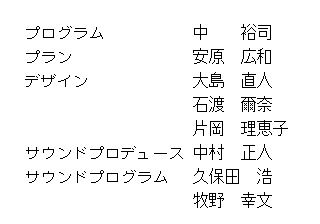
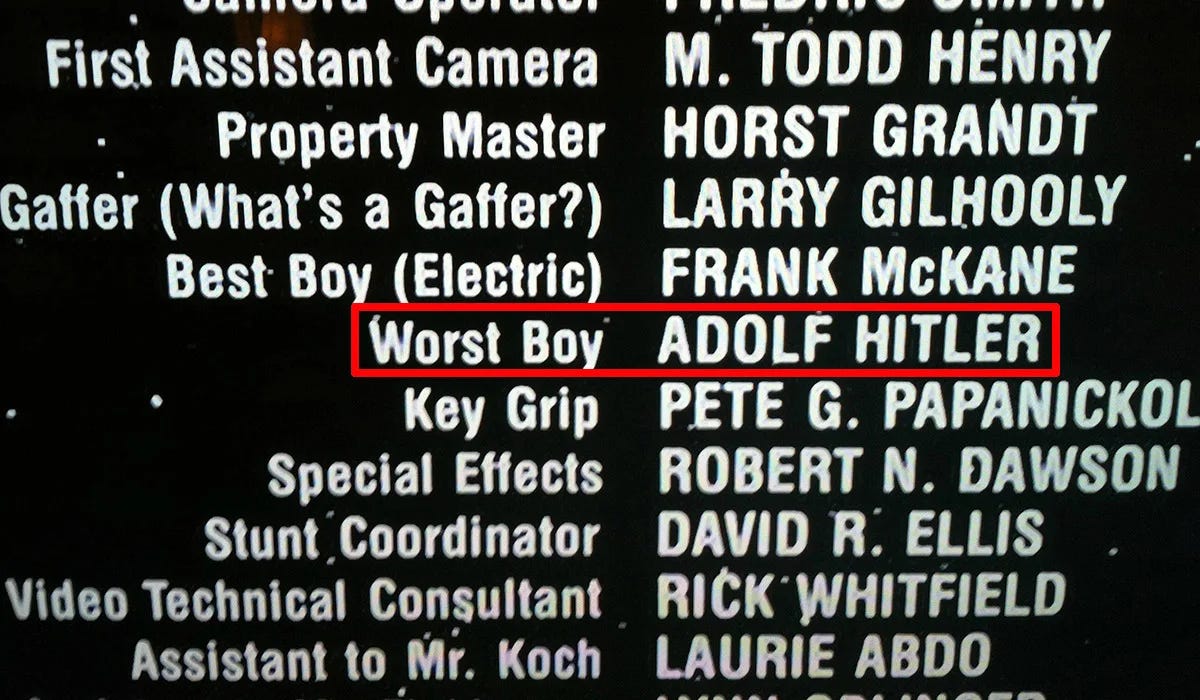
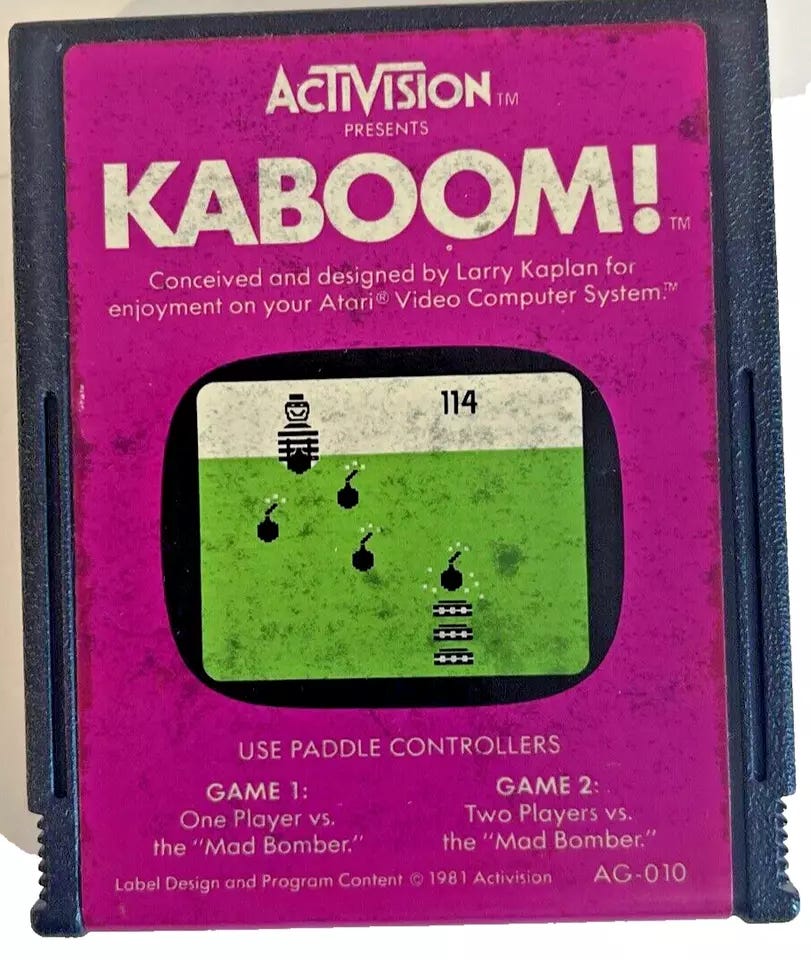

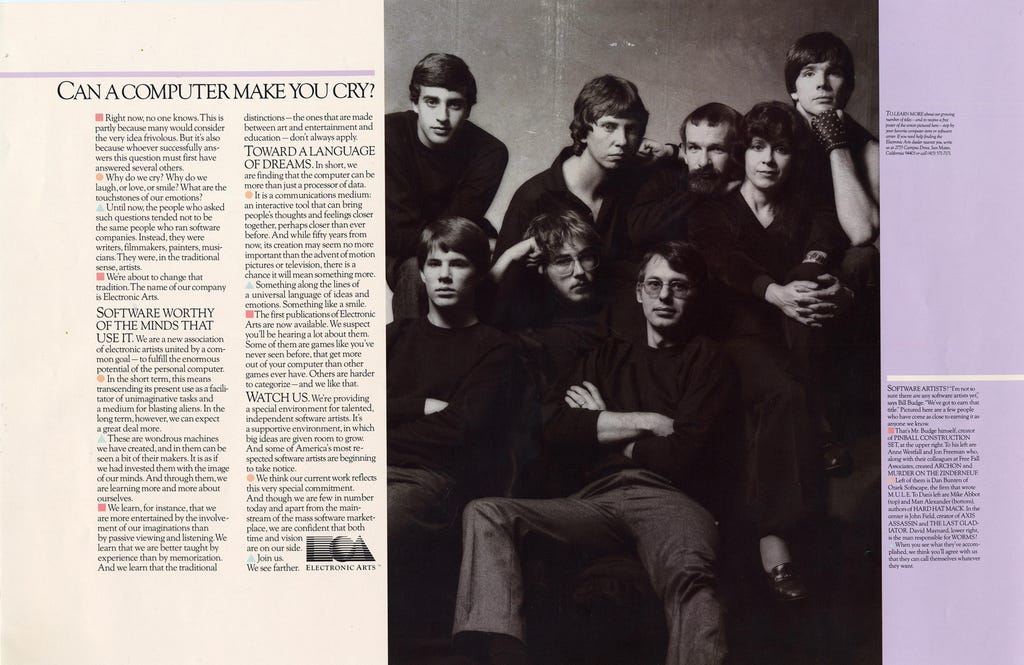
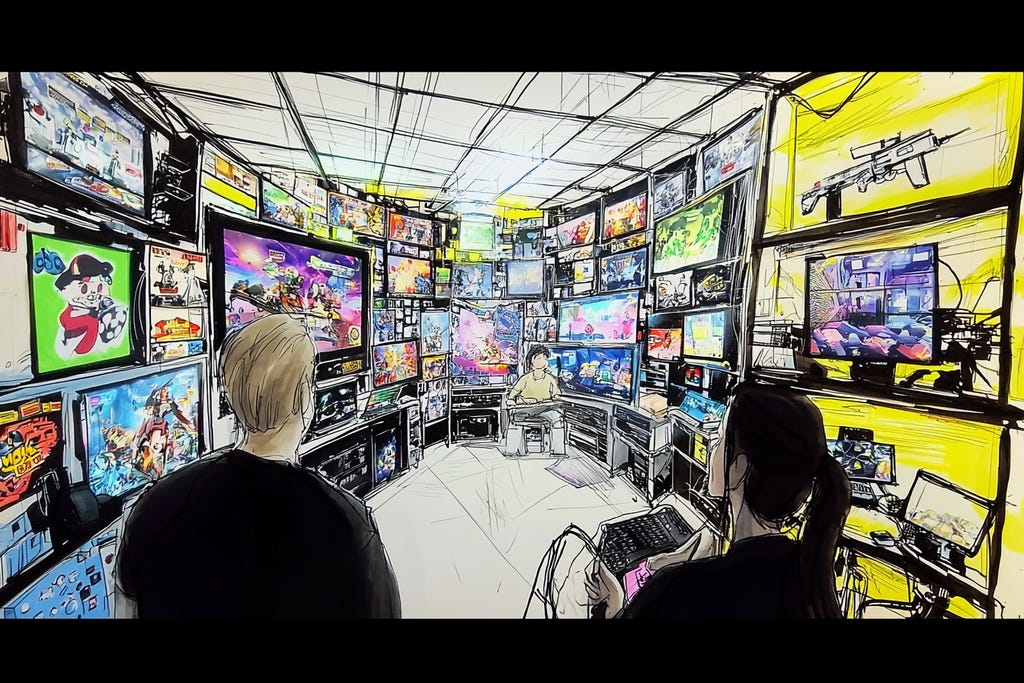
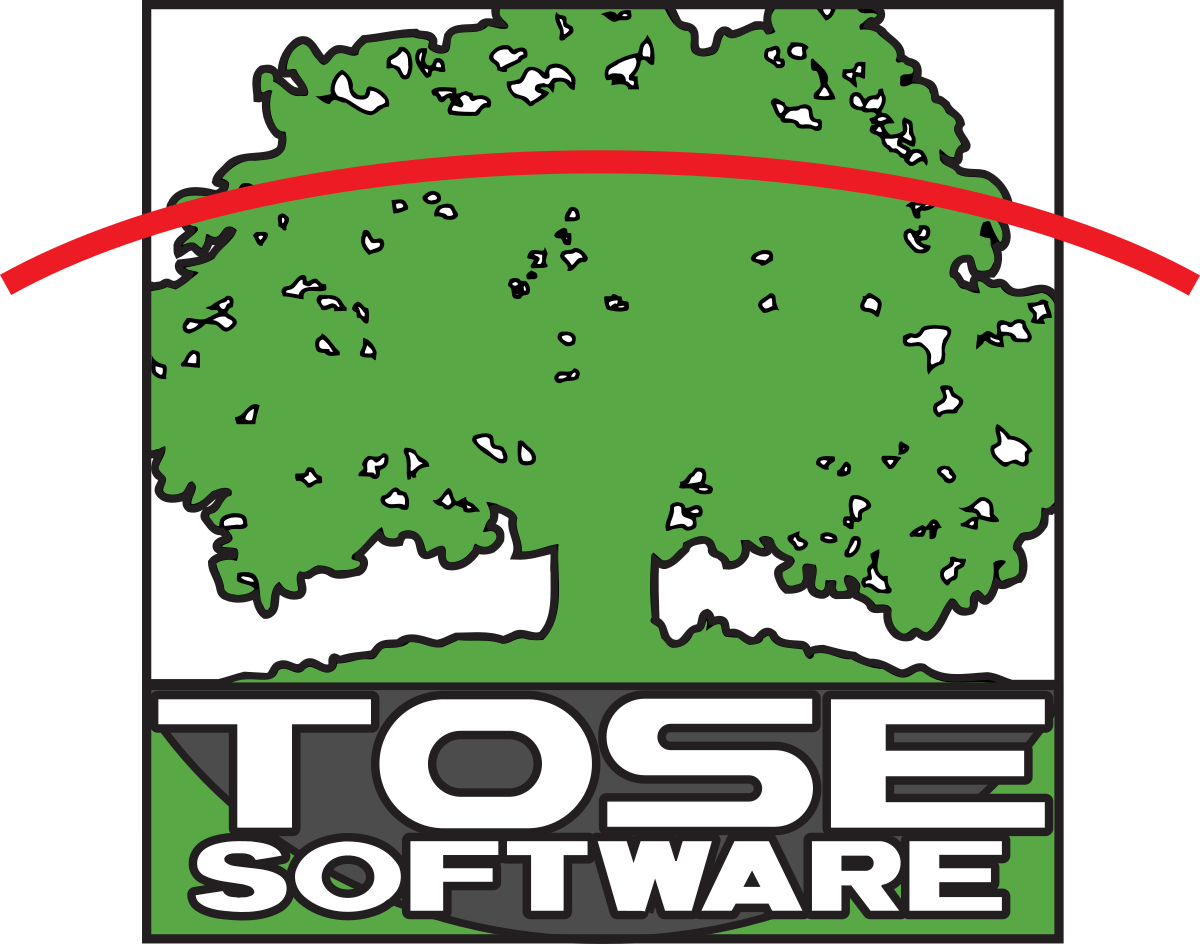
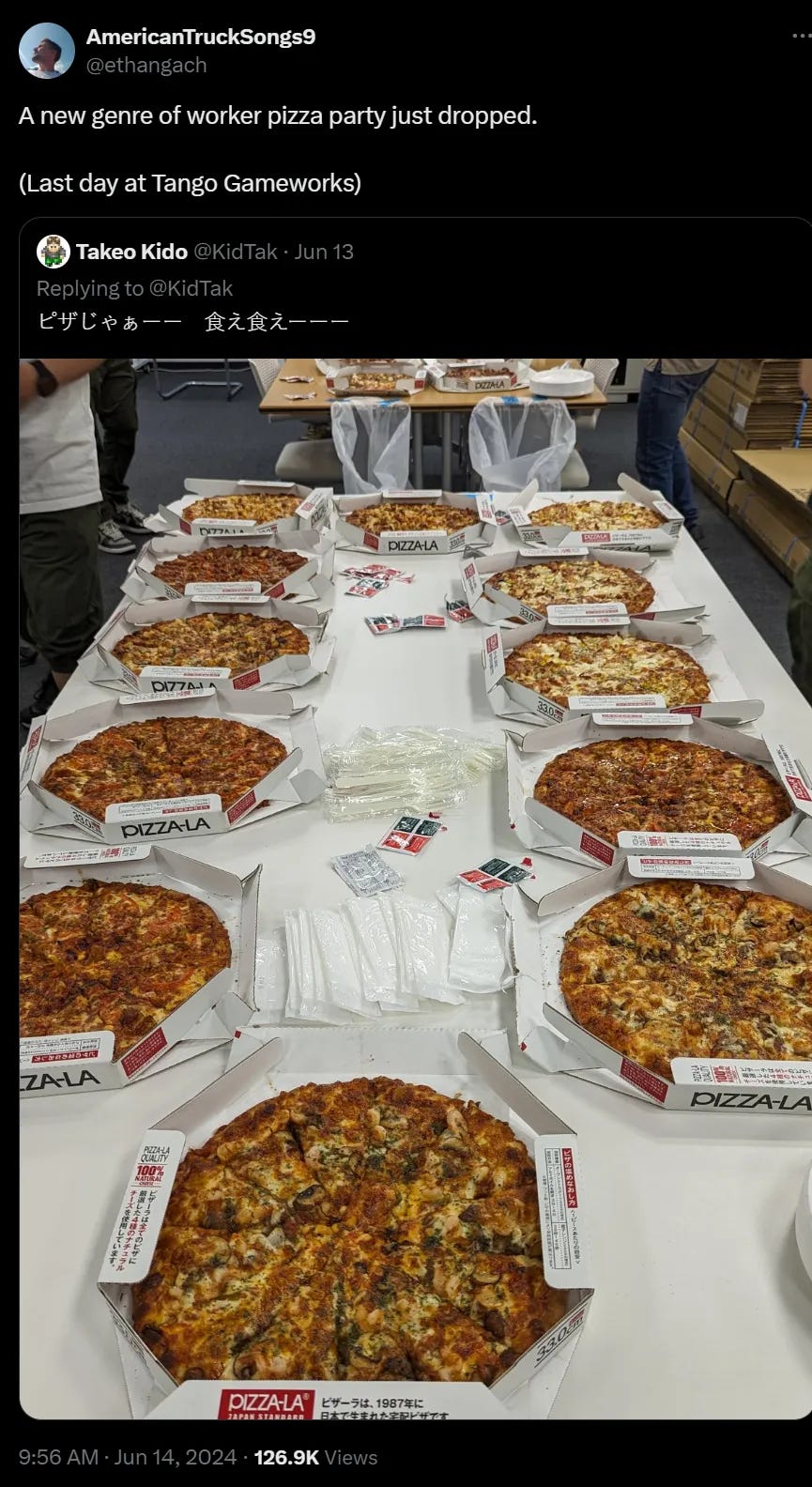
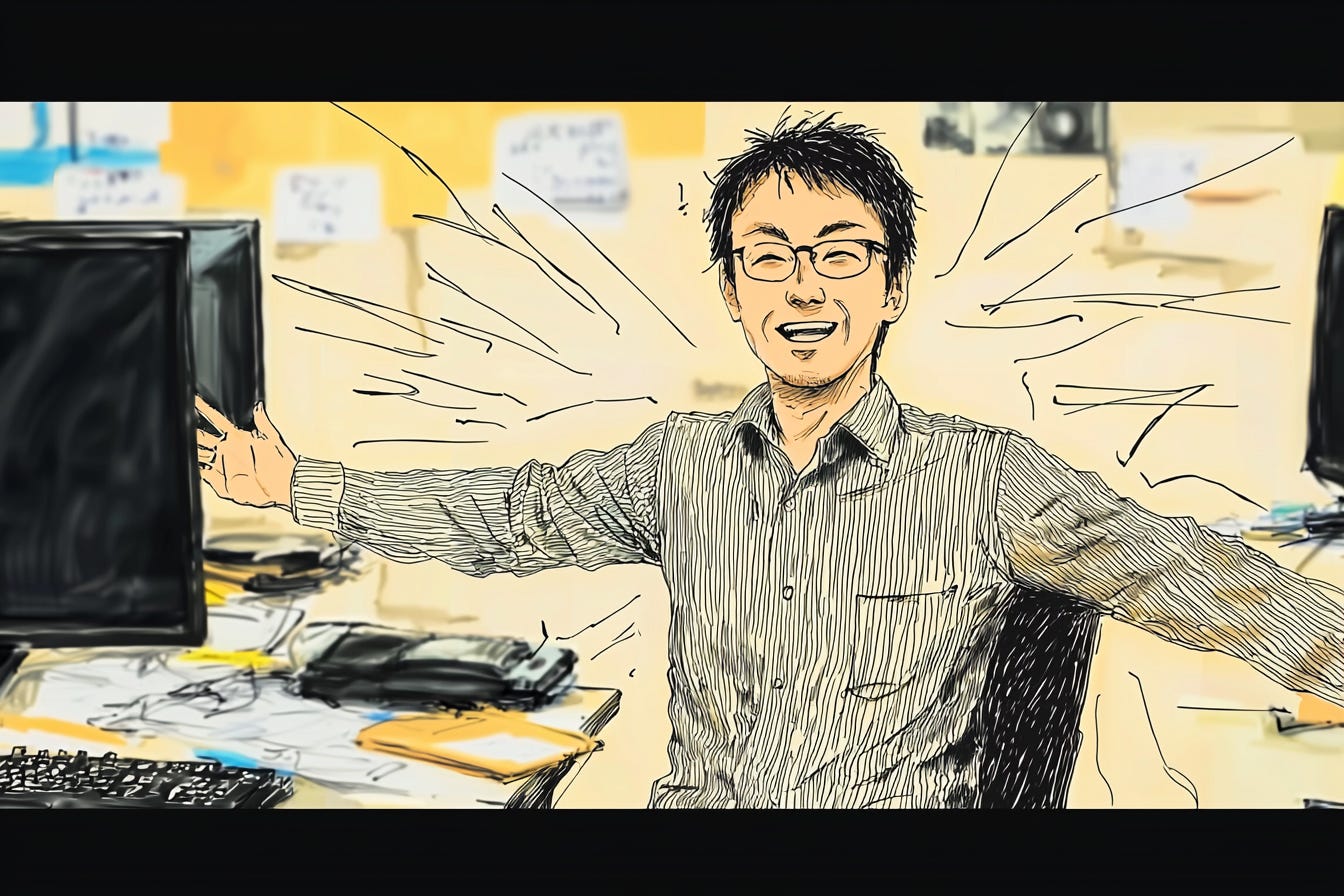
"Did you do this?" "Nope"